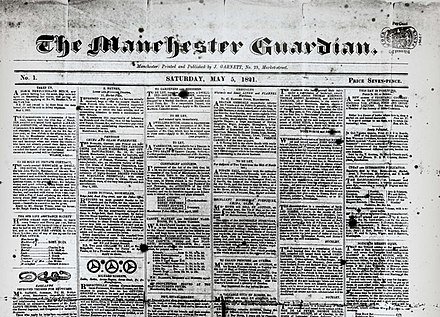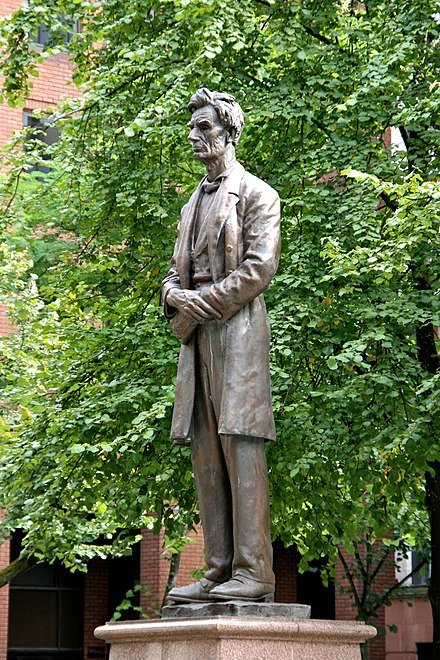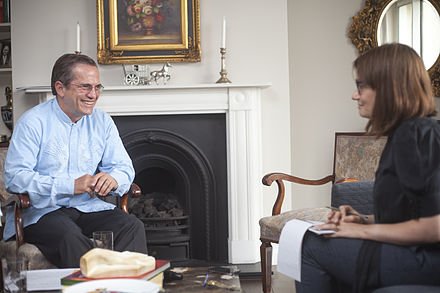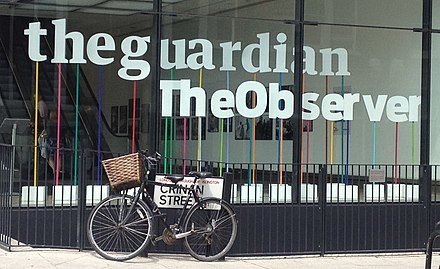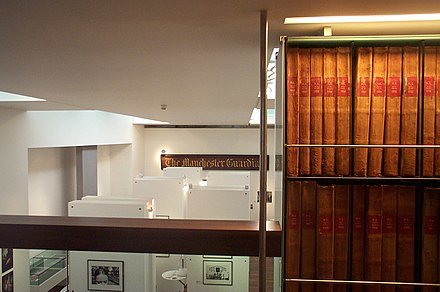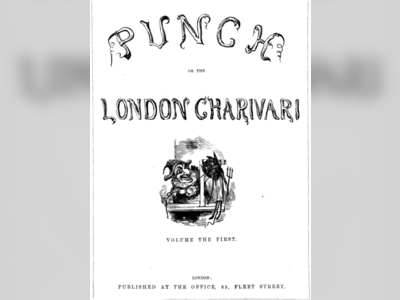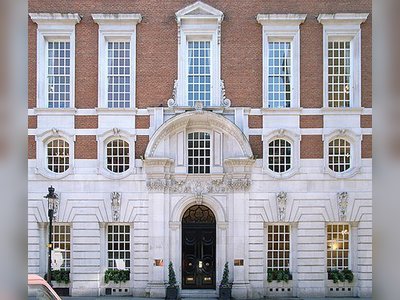British Heritage
Remember, Cherish, Learn.
beta
The Guardian
Contribution of The Guardian to British Heritage.
The Guardian, a British daily newspaper, holds a significant place in British heritage due to its longstanding history, commitment to journalistic integrity, and contributions to shaping public discourse. Founded in 1821 as The Manchester Guardian by cotton merchant John Edward Taylor and a group of non-conformist businessmen, the newspaper emerged in the aftermath of the police closure of the radical Manchester Observer, which had advocated for the rights of the Peterloo Massacre protesters. The paper was established with the aim of "zealously enforcing the principles of civil and religious Liberty" and supporting just political and economic measures.
Throughout its existence, The Guardian has been committed to promoting liberal values, journalistic freedom, and independence from commercial or political interference. In 1936, the Scott Trust was created to secure the financial and editorial independence of the newspaper in perpetuity. The trust was converted into a limited company in 2008, ensuring that profits are reinvested in journalism, upholding the values set forth by its creators. This commitment to independent journalism has been a cornerstone of The Guardian's legacy.
Over the years, The Guardian has experienced various transformations and successes. In 1959, the newspaper changed its name to The Guardian, reflecting its growing prominence in national and international affairs. The paper has remained at the forefront of British media, attracting readers who align with mainstream left-wing political opinion. Its online presence, TheGuardian.com, has expanded its readership globally, and it has established international websites, such as Guardian Australia and Guardian US, further cementing its influence in the digital age.
Under the editorship of Katharine Viner, who succeeded Alan Rusbridger in 2015, The Guardian has continued to uphold its reputation as a newspaper of record in the UK. Its commitment to credible and reliable reporting has earned it the trust of readers, with an Ipsos MORI research poll in September 2018 indicating that 84% of readers trust the digital-content news provided by The Guardian.
The newspaper's impact extends beyond its commitment to journalism. Throughout its history, The Guardian has broken significant stories, often referred to as "scoops," that have exposed wrongdoings and corruption. Among its notable achievements are the investigations into the 2011 News International phone-hacking scandal, which led to the closure of the News of the World, and the exposure of the surveillance program PRISM in 2013, thanks to the leaks from whistleblower Edward Snowden. Furthermore, The Guardian's investigative journalism played a crucial role in the Panama Papers investigation, revealing offshore bank accounts linked to then-Prime Minister David Cameron.
The Guardian's impact on the national and international stage has earned it numerous accolades. It has been named "newspaper of the year" four times at the annual British Press Awards, with the latest recognition in 2014 for its reporting on government surveillance. Its journalistic contributions have consistently highlighted issues of public interest and contributed to the ongoing debates on various political, social, and global matters.
The Guardian's contribution to British heritage is multifaceted. First and foremost, it has been instrumental in upholding democratic values and the principles of a free press. The newspaper's steadfast commitment to editorial independence and the pursuit of truth has helped safeguard democratic ideals in the UK. The establishment of the Scott Trust in 1936 was a pioneering move to ensure the newspaper's freedom from undue influence, setting a precedent for other media organizations to follow.
Moreover, The Guardian's role in exposing injustices, corruption, and abuses of power has contributed significantly to accountability and transparency in British society. Through its investigative reporting, the newspaper has brought to light critical issues that might have otherwise remained hidden from public view. These exposés have not only shaped public opinion but have also triggered important reforms and policy changes.
Additionally, The Guardian's dedication to liberal values and progressive ideals has been influential in shaping public discourse and debates on various social and political issues. The newspaper has consistently advocated for civil liberties, social justice, and political reform. As a prominent voice of the mainstream left in British media, The Guardian has been an important platform for diverse perspectives and alternative viewpoints.
Furthermore, The Guardian's embrace of digital journalism and its strong online presence have helped it reach a global audience, expanding its influence beyond the UK's borders. In an era of increasing globalization and interconnectedness, the newspaper's international reach has contributed to British soft power and cultural diplomacy.
In conclusion, The Guardian's rich legacy, commitment to journalistic integrity, success in investigative reporting, and influential role in shaping public discourse all contribute to its significant impact on British heritage. As a newspaper of record, it has played a pivotal role in upholding democratic values, exposing wrongdoings, and promoting open dialogue on critical issues. Its contributions have not only shaped the British media landscape but have also left a lasting impression on the nation's cultural and political heritage.
Throughout its existence, The Guardian has been committed to promoting liberal values, journalistic freedom, and independence from commercial or political interference. In 1936, the Scott Trust was created to secure the financial and editorial independence of the newspaper in perpetuity. The trust was converted into a limited company in 2008, ensuring that profits are reinvested in journalism, upholding the values set forth by its creators. This commitment to independent journalism has been a cornerstone of The Guardian's legacy.
Success and General Information
Over the years, The Guardian has experienced various transformations and successes. In 1959, the newspaper changed its name to The Guardian, reflecting its growing prominence in national and international affairs. The paper has remained at the forefront of British media, attracting readers who align with mainstream left-wing political opinion. Its online presence, TheGuardian.com, has expanded its readership globally, and it has established international websites, such as Guardian Australia and Guardian US, further cementing its influence in the digital age.
Under the editorship of Katharine Viner, who succeeded Alan Rusbridger in 2015, The Guardian has continued to uphold its reputation as a newspaper of record in the UK. Its commitment to credible and reliable reporting has earned it the trust of readers, with an Ipsos MORI research poll in September 2018 indicating that 84% of readers trust the digital-content news provided by The Guardian.
The newspaper's impact extends beyond its commitment to journalism. Throughout its history, The Guardian has broken significant stories, often referred to as "scoops," that have exposed wrongdoings and corruption. Among its notable achievements are the investigations into the 2011 News International phone-hacking scandal, which led to the closure of the News of the World, and the exposure of the surveillance program PRISM in 2013, thanks to the leaks from whistleblower Edward Snowden. Furthermore, The Guardian's investigative journalism played a crucial role in the Panama Papers investigation, revealing offshore bank accounts linked to then-Prime Minister David Cameron.
The Guardian's impact on the national and international stage has earned it numerous accolades. It has been named "newspaper of the year" four times at the annual British Press Awards, with the latest recognition in 2014 for its reporting on government surveillance. Its journalistic contributions have consistently highlighted issues of public interest and contributed to the ongoing debates on various political, social, and global matters.
Contribution to British Heritage
The Guardian's contribution to British heritage is multifaceted. First and foremost, it has been instrumental in upholding democratic values and the principles of a free press. The newspaper's steadfast commitment to editorial independence and the pursuit of truth has helped safeguard democratic ideals in the UK. The establishment of the Scott Trust in 1936 was a pioneering move to ensure the newspaper's freedom from undue influence, setting a precedent for other media organizations to follow.
Moreover, The Guardian's role in exposing injustices, corruption, and abuses of power has contributed significantly to accountability and transparency in British society. Through its investigative reporting, the newspaper has brought to light critical issues that might have otherwise remained hidden from public view. These exposés have not only shaped public opinion but have also triggered important reforms and policy changes.
Additionally, The Guardian's dedication to liberal values and progressive ideals has been influential in shaping public discourse and debates on various social and political issues. The newspaper has consistently advocated for civil liberties, social justice, and political reform. As a prominent voice of the mainstream left in British media, The Guardian has been an important platform for diverse perspectives and alternative viewpoints.
Furthermore, The Guardian's embrace of digital journalism and its strong online presence have helped it reach a global audience, expanding its influence beyond the UK's borders. In an era of increasing globalization and interconnectedness, the newspaper's international reach has contributed to British soft power and cultural diplomacy.
In conclusion, The Guardian's rich legacy, commitment to journalistic integrity, success in investigative reporting, and influential role in shaping public discourse all contribute to its significant impact on British heritage. As a newspaper of record, it has played a pivotal role in upholding democratic values, exposing wrongdoings, and promoting open dialogue on critical issues. Its contributions have not only shaped the British media landscape but have also left a lasting impression on the nation's cultural and political heritage.
- The Guardianen.wikipedia.org


